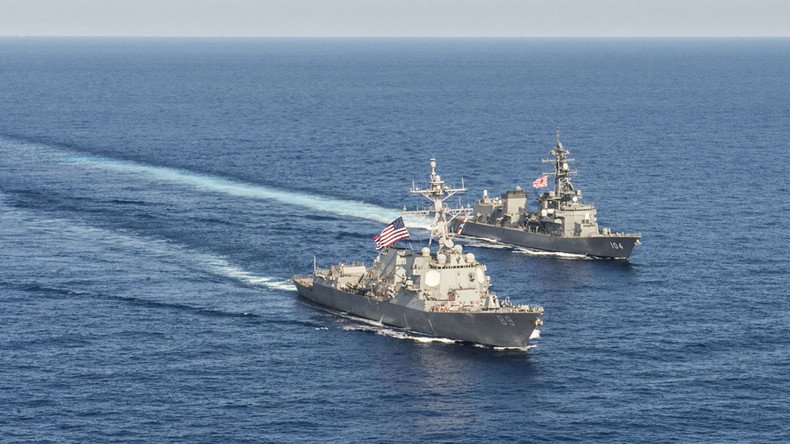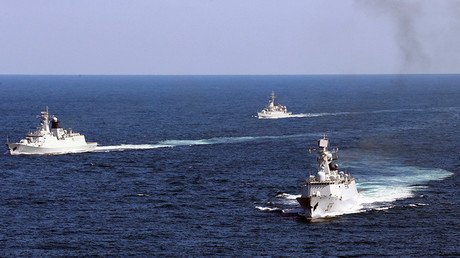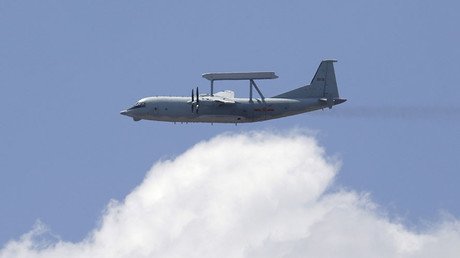Beijing warns Washington against naval patrols in disputed S. China Sea

Beijing has warned Washington against actions which would challenge China’s “sovereignty and security,” following reports that the US is planning naval patrols in the disputed South China Sea.
Speaking at a news briefing on Wednesday, Chinese Foreign Ministry spokesman Geng Shuang said that tensions in the waters have stabilized, due to the hard work of Beijing and Southeast Asia countries.
He went on to urge the US to respect the current situation by not taking “any actions that challenge China’s sovereignty and security,” Reuters reported.
The statement follows a Sunday report by the Navy Times, which stated that US Navy and Pacific Command leaders were considering freedom of navigation patrols by the San Diego-based Carl Vinson Carrier Strike Group, citing unnamed defense officials.
A spokesman for Carrier Strike Group One, Dave Bennett, said the group does not discuss future operations of its units, but said the group is “on a regularly scheduled Western Pacific deployment as part of the US Pacific Fleet-led initiative to extend the command and control functions of the US 3rd Fleet.”
“US Navy aircraft carrier strike groups have patrolled the Indo-Asia-Pacific regularly and routinely for more than 70 years,” Bennett added.
The US last conducted a freedom of navigation operation in the area in October, when it sailed the guided-missile destroyer USS Decatur near the Paracel Islands, which are under Chinese control.
Although Beijing slammed the October operation as “illegal” and “provocative,” US officials denied wrongdoing, stating that America was exercising its rights to sail through international waters.
China lays claim to almost all of the resource-rich South China Sea, despite competing claims from Vietnam, the Philippines, Taiwan, Malaysia, and Brunei. In opposition to its neighbors’ claims, China has added to regional tensions by building artificial islands in the sea, complete with military installations.
Washington has repeatedly criticized Beijing’s construction of man-made islands and its build-up of military facilities in the sea, with US Secretary of State Rex Tillerson stating last month that China’s access to its artificial islands should be restricted.
Tillerson’s comments were met with backlash from the state-sanctioned Global Times newspaper, which wrote that it would take a “large-scale war” to prevent Beijing from having access to the islands, noting that any other approaches would be “foolish.”
The newspaper went on to stress that the US “has no absolute power to dominate the South China Sea.”
Last year, judges at the arbitration tribunal ruled that China’s artificial islands have caused irreparable harm to the ecosystem of the South China Sea’s Spratly Islands and breached the sovereign rights of the Philippines.
China quickly declared The Hague’s decision “null and void,” and soon started building an artificial island on Scarborough Shoal, just northeast of the Spratlys.














